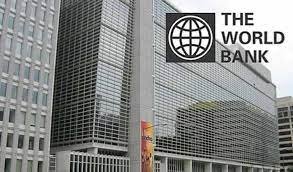BSS: Bangladesh has made a strong economic recovery from the COVID-19 pandemic, but growth faces new headwinds as global commodity prices increase amid the uncertainty created by the war in Ukraine, says a new World Bank report.
The report titled “Bangladesh Development Update – Recovery and Resilience Amid Global Uncertainty,” was launched through a virtual media briefing today.
In Bangladesh, a rebound of manufacturing and service sector activities led strong growth in FY21 and in the first half of FY22. In the medium term, GDP growth is expected to remain strong.
Headline inflation rose to 6.2 percent in February 2022, driven by a rise in both food and non-food prices. The war in Ukraine and associated sanctions may lead to a higher current account deficit and rising inflation as global commodity prices surge.
Public debt remains sustainable, and the March 2022 joint World Bank-IMF Debt Sustainability Analysis assessed that Bangladesh remained at low risk of external and public debt distress.
Mercy Tembon, Country Director for Bangladesh and Bhutan, said following a strong economic recovery from the pandemic, estimated poverty declined to 11.9 percent in FY21 from 12.5 percent in FY20, as per the international poverty rate.
“Going forward, close monitoring of inflation and the potential impacts of the war in Ukraine will be important for the country’s sustainable and inclusive growth. The World Bank stands ready to help Bangladesh address structural reforms to support recovery and strengthen resilience to future shocks,” she added.
The update is a companion piece to the latest South Asia Economic Focus – Reshaping Norms: A New Way Forward which notes growth in South Asia, already uneven and fragile, will be slower than previously projected, mostly due to the impacts of the war in Ukraine.
The report projects the region to grow by 6.6 percent in 2022 and by 6.3 percent in 2023. The 2022 forecast has been revised downward by 1.0 percentage point compared to the January projection.
Countries in South Asia are already grappling with rising commodity prices, supply bottlenecks, and vulnerabilities in financial sectors. The war in Ukraine will amplify these challenges, further contributing to inflation, and deteriorating current account balances.
Hartwig Schafer, World Bank Vice President for South Asia said “South Asia has faced multiple shocks in the past two years, including the scarring effects of the COVID-19 pandemic. High oil and food prices caused by the war in Ukraine will have a strong negative impact on peoples’ real incomes,”
“Given these challenges, governments need to carefully plan monetary and fiscal policies to counter external shocks and protect the vulnerable, while laying the foundation for green, resilient and inclusive growth,” he added.
The war and its impact on fuel prices can provide the region with much-needed impetus to reduce reliance on fuel imports and transition to a green, resilient and inclusive growth trajectory. The report recommends that countries steer away from inefficient fuel subsidies that tend to benefit wealthier households and deplete public resources. South Asian countries should also move towards a greener economy by gradually introducing taxation that puts tariffs on products which cause environmental damage.
Hans Timmer, World Bank Chief Economist for the South Asia Region, said the introduction of green taxation can have multiple quantifiable benefits for South Asia, including improved energy security, environmental gains and increased fiscal revenues.
“These revenues could be utilized for adaptation against climate-related disasters and to strengthen social safety net systems,” he added.
Another challenge the region faces is the disproportionate economic impact the pandemic has had on women. The report includes in-depth analysis of gender disparities in the region and their link with deeply rooted social norms, and recommends policies that will support women’s access to economic opportunities, tackle discriminatory norms, and improve gender outcomes for inclusive growth.

